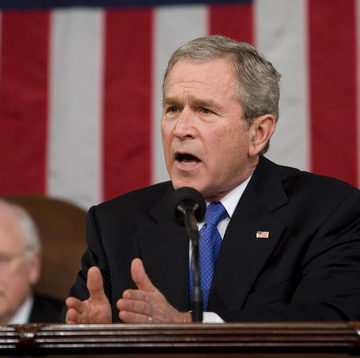
The War in Iraq: A Study in Decision-Making
Paul Wolfowitz and Lewis Libby
Hertog Foundation | 2018
History takes on a different aspect when viewed not from years removed and with the consequences of decisions taken known, but from the viewpoints of the actual policymakers as decisions approached and as unexpected events, rivalries, counter-moves, mistakes, and imperfect understandings intervened. Moreover, judging historical events requires an exploration of what might have happened over time if different decisions had been made. This course explores these themes in light of one of the most dynamic confrontations of the late 20th and early 21st centuries: the U.S. and Iraq.
Twice in the last quarter century America has gone to war with Iraq, and the two were in a state of low-level conflict during the interim. Both times America went to war with Congressional authorization, at the head of an international coalition, and in support of U.N. Resolutions. The 1990–1 Persian Gulf War ended quickly with minimal U.S. casualties, but left a brutal dictator in place and American interests at risk. The U.S. invasion of Iraq in 2003 quickly removed the regime that had repeatedly defied America and gave Iraqis a chance to devise their own future. However, the war soon devolved into a messy combination of insurgency and sectarian fighting that brought thousands of U.S. casualties, sapped American will and credibility, and worked to the benefit of America’s other regional nemesis, Iran. These events occurred not in isolation, but against the backdrop of broader international developments, particularly the ending of the Cold War, the attacks of 9/11/2001, and the on-going U.S. confrontation with radical Islam.
This weeklong seminar examines some key strategic decisions made at critical phases of that long confrontation. It will briefly review the first war and its ending, but the course will focus most heavily on the second war, its justification, pre-invasion planning, conduct, and post-invasion phase. It will be led by Paul D. Wolfowitz, who served during the Persian Gulf War as the Under Secretary of Defense for Policy and as Deputy Secretary of Defense during the first years of the Iraq War, and by Lewis Libby, who served during the first war as Deputy Under Secretary of Defense for Policy and during the Iraq War as Chief of Staff and National Security Adviser to Vice President Dick Cheney.